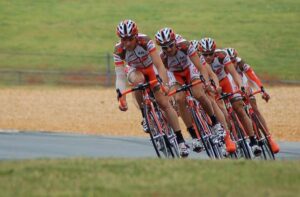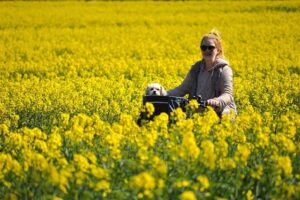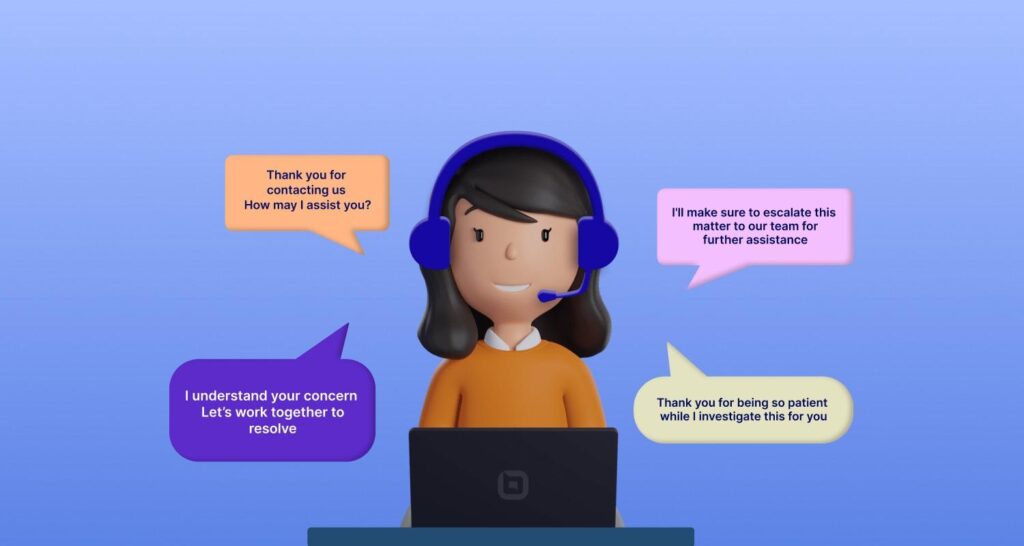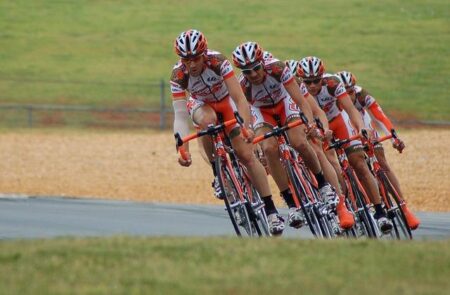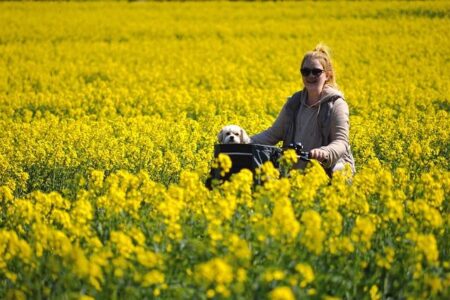In a groundbreaking move for women’s off-road cycling, the recent partnerships between Unbound Gravel and Lauf Gravel Worlds are challenging the status quo and setting ambitious new standards for female participation in the sport. With the mantra “‘1,000 women is the baseline, not the goal,'” these events aim to elevate the presence and performance of women in gravel racing, a discipline that has traditionally seen lower female representation. As organizers implement strategies to not only welcome but also empower women cyclists, the initiative promises to reshape the landscape of competitive cycling, making it more inclusive and equitable. This article explores the implications of these changes and the potential for growth in a sport ripe for transformation.
Raising the Standard for Women’s Participation in Off-Road Cycling
Unbound Gravel and Lauf Gravel Worlds are setting a transformative precedent in the realm of off-road cycling by establishing a target that prioritizes inclusivity and participation for women. By announcing that “1,000 women is the baseline, not the goal,” both organizations are calling for a significant cultural shift within the cycling community. This initiative encourages women to participate actively, not merely as a checkbox but as vital contributors to the sport’s vibrant landscape. This baseline aims to create a supportive environment where seasoned racers and newcomers alike feel motivated to tackle their cycling ambitions.
To achieve this ambitious standard, the organizers are focusing on several key strategies:
- Enhanced Visibility: Promoting female cyclists through tailored marketing campaigns and featuring them prominently in event materials.
- Workshops and Clinics: Offering skill-building opportunities that specifically cater to women cyclists, fostering confidence and community.
- Community Building: Establishing online platforms and local meet-ups to nurture relationships among female cyclists.
The emphasis on these strategies signifies a commitment to not only increasing participation numbers but also enriching the overall experience and representation of women in the sport. As events like Unbound and Lauf demonstrate, raising the bar is about creating an inclusive and sustainable cycling culture that empowers every woman to hit the trails.
Breaking Barriers with Unbound Gravel and Lauf Gravel Worlds
The landscape of off-road cycling is undergoing a transformative shift, with events like Unbound Gravel and Lauf Gravel Worlds taking bold strides to enhance female participation. Their mission goes beyond mere numbers-1,000 female riders is merely the starting point, not a culmination. By creating inclusive environments that promote camaraderie and competition, these events aim to empower women to embrace gravel riding, allowing them to challenge traditional norms and break through barriers that have historically limited their participation in cycling. The commitment shown by event organizers to increase visibility and opportunities for women is a significant step forward in a sport long dominated by men.
This commitment is reflected in the events’ strategic initiatives, including:
- Targeted outreach: Engaging local communities and promoting female-centric cycling clinics.
- Mentorship programs: Pairing experienced riders with newcomers to enhance skill development and build confidence.
- Prizes and recognition: Offering equal prize pools to encourage competitive spirit among female participants.
Furthermore, the collaboration between Unbound Gravel and Lauf Gravel Worlds serves as an educational platform for aspiring female cyclists. With a focus on creating sustainable cycling communities, these initiatives not only inspire women but also reinforce the importance of shared experiences. By advancing these objectives, they lay the groundwork for a more balanced future in gravel cycling, where the participation of women is not just welcomed but celebrated.
Empowering Female Cyclists: Recommendations for Expanding Opportunities in the Sport
The recent initiatives by Unbound Gravel and Lauf Gravel Worlds showcase a significant shift towards inclusivity in off-road cycling, particularly for women. By setting a baseline of 1,000 female participants, these organizations underscore the necessity of not only increasing visibility but also fostering a supportive environment for women in the sport. To build upon this momentum, several strategies can be implemented to enhance participation and retention among female cyclists:
- Development Programs: Establish mentorship and training programs specifically designed for women, facilitating skills development and confidence building.
- Sponsorship Opportunities: Partner with brands willing to invest in female cyclists through financial support or equipment sponsorship.
- Inclusive Events: Organize more women-focused cycling events and clinics that promote fun and competition without a heavy pressure to win.
- Community Engagement: Cultivate local cycling groups that emphasize female camaraderie and support, making rides more accessible and enjoyable.
Furthermore, data from recent events can serve as a catalyst for continuous improvement. Consider the following table highlighting key metrics from last year’s female participation:
| Event | Female Participants | Overall Participation (%) |
|---|---|---|
| Unbound Gravel | 1,200 | 20% |
| Lauf Gravel Worlds | 950 | 15% |
Such metrics not only highlight the importance of expanding female representation in events but also provide valuable data points for evaluating the effectiveness of initiatives aimed at encouraging more women to embrace the sport. With the right focus and resources, the future of women in cycling can evolve beyond the baseline, setting higher aspirations and pathways for female cyclists everywhere.
Wrapping Up
As the cycling community continues to evolve, the initiatives launched by Unbound Gravel and Lauf Gravel Worlds reflect a critical push towards inclusivity and representation in off-road cycling. With the declaration that “1,000 women is the baseline, not the goal,” these events are not only setting a higher standard for female participation but also challenging the industry to support and empower women riders. As we move forward, the focus shifts from merely meeting participation metrics to creating enduring changes that foster a more diverse and vibrant cycling culture. This ongoing commitment to growth and equality marks a pivotal moment in the sport, one that promises to inspire future generations of women athletes. The road ahead is paved with potential, and the cycling world is witnessing the dawn of a new era.



